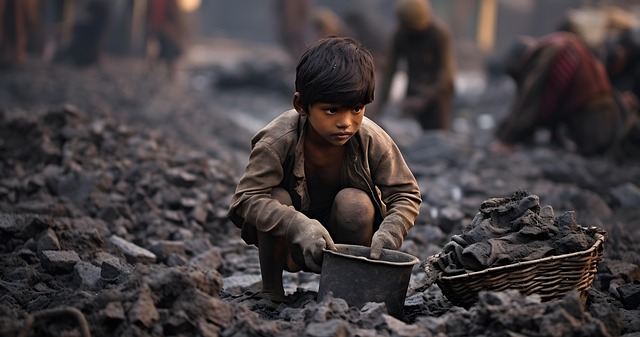Oregon Family Law: Protecting Children’s Rights & Welfare

Oregon family law prioritizes child welfare and rights through a comprehensive framework focusing on…….
We are At Your Service
In the intricate web of child welfare systems, the role of a dedicated Child Welfare Attorney within the Department of Human Services (DHS) is pivotal. This comprehensive article delves into the specific context of Clackamas County, Oregon, exploring the DHS-Child Welfare Attorney’s responsibilities, impact, and the broader implications for children’s rights and well-being. By examining various facets, from international perspectives to technological innovations, we aim to offer a nuanced understanding of this critical profession.
Definition: The DHS-Child Welfare Attorney in Clackamas County, Oregon, is a legal professional charged with advocating for the rights and interests of children within the county’s child welfare system. They play a crucial role in ensuring that the department adheres to legal standards and protects the best interests of minors involved in foster care, adoption, or other protective arrangements.
Core Responsibilities:
Legal Counsel: They provide expert legal advice to DHS caseworkers, helping them navigate complex laws and regulations related to child welfare. This includes guidance on removal procedures, protective orders, and ensuring due process rights for both children and parents.
Litigation Support: Child Welfare Attorneys often represent the DHS in court proceedings, defending the department’s decisions and advocating for the child’s long-term interests. They may also initiate legal actions against individuals or entities found to be abusive or negligent towards children.
Policy Development: Collaborating with policymakers, these attorneys contribute to the creation and revision of local child welfare policies. Their input ensures that legal frameworks are in line with ethical and effective child protection practices.
Community Engagement: They engage with local communities, schools, and organizations to raise awareness about child abuse prevention and promote understanding of the DHS’s role in protecting vulnerable children.
Historical Context: The modern concept of child welfare attorneys emerged from the growing recognition of the need for specialized legal support within social services. Over time, their roles have evolved, adapting to changing laws and societal views on childhood protection. In Oregon, the establishment of a dedicated DHS-Child Welfare Attorney position reflects a commitment to ensuring equitable and just outcomes in child-related cases.
The impact of effective child welfare practices extends far beyond national borders, as global trends and international collaborations shape the field. Here’s an overview:
International Adoption: With growing awareness of trans-national adoption, many countries have implemented stringent regulations to protect children involved in these processes. The DHS-Child Welfare Attorney’s expertise can be invaluable in navigating these complex legal landscapes, ensuring ethical adoptions, and preventing exploitation.
Cross-Border Child Trafficking: Oregon, like many states, is at the intersection of global child trafficking networks. Attorneys specializing in child welfare play a critical role in identifying and supporting victims, working with international authorities, and advocating for stronger cross-border cooperation to combat this heinous crime.
Global Policy Collaboration: Organizations like the United Nations Children’s Fund (UNICEF) and the World Health Organization (WHO) provide guidelines and support for child welfare practices worldwide. Oregon’s DHS attorneys can contribute to these efforts by sharing their knowledge and experiences, fostering a global network of best practices.
The economic aspects of DHS-Child Welfare Attorney operations are multifaceted, impacting both the local community and the broader economy:
| Economic Factor | Impact |
|---|---|
| Funding Sources: Funding for child welfare services primarily originates from state and federal government grants. These funds support attorney salaries, legal resources, and caseworker training. | Ensuring adequate funding is essential to maintain a robust child protection system. Oregon’s economic health directly influences the resources available for these critical services. |
| Cost of Legal Services: Legal representation in child welfare cases can be substantial. However, it is a necessary investment to protect children’s rights and ensure fair outcomes. | The DHS budget allocates funds specifically for legal services, recognizing their importance. Efficient resource allocation is key to balancing effective advocacy and financial sustainability. |
| Economic Impact on Families: Successful interventions by child welfare attorneys can break cycles of poverty and abuse, leading to improved long-term prospects for children and families. | By fostering safe and stable environments, these attorneys contribute to the overall economic well-being of communities, reducing future social and economic costs associated with child neglect or abuse. |
Technology plays a transformative role in modern child welfare practices, enhancing efficiency and accessibility. Here are some key advancements:
Case Management Software: Specialized software streamlines caseworker processes, allowing them to document interactions, manage case plans, and track progress effectively. This improves service coordination and ensures continuity of care.
Online Legal Research: Access to robust legal databases enables attorneys to quickly research relevant laws, court decisions, and regulatory guidelines. This efficiency is crucial for making informed decisions in complex cases.
Digital Evidence Collection: With advancements in digital forensics, child welfare investigators can gather and preserve electronic evidence, including social media posts and online communications, to support their cases.
Telehealth Services: During the COVID-19 pandemic, telehealth became essential for maintaining contact with children in foster care and their families. This technology ensures ongoing support and reduces potential trauma associated with frequent travel.
The legal landscape of child welfare is governed by a complex web of policies, regulations, and laws:
Oregon Revised Statutes (ORS): These statutes outline the powers and responsibilities of the DHS, including provisions for child protection, foster care, and adoption. ORS 419 provides specific guidelines for the role and authority of child welfare attorneys.
Child Welfare Code: The code establishes procedures for investigating reports of child abuse, removing children from harmful environments, and providing services to support families. It also defines the rights of both children and parents during these processes.
Federal Laws (e.g., Child Abuse Prevention and Treatment Act – CAPTA): Federal legislation sets minimum standards for states, ensuring a uniform level of protection for abused and neglected children across the nation. CAPTA requires states to have reporting mechanisms, investigation protocols, and services for victims.
Local Policies and Protocols: In addition to state and federal laws, local DHS offices develop policies tailored to their communities’ unique needs. These policies guide caseworker practices, attorney involvement, and community partnerships.
Despite significant progress, the DHS-Child Welfare Attorney role faces several challenges:
Case Load Management: High caseloads can hinder attorneys’ ability to provide thorough legal support, potentially leading to longer response times and less personalized attention for each case.
Resource Constraints: Limited funding may restrict access to necessary resources, such as specialized software or training opportunities, impacting the quality of service delivery.
Public Perception: Misconceptions about child welfare practices can create barriers to cooperation from parents and communities. Educating the public about the role and importance of DHS attorneys is crucial for fostering trust and support.
Proposed Solutions:
Situation: A family faced the threat of permanent separation due to a parent’s struggle with mental health issues, which impaired their ability to care for their children.
Action: The DHS-Child Welfare Attorney in Clackamas County successfully negotiated a temporary custody arrangement, allowing the parent time to seek treatment while ensuring the children’s safety and well-being.
Outcome: Through ongoing legal support, the family received necessary services, leading to successful reunification. This case highlights the attorney’s role in providing creative solutions that respect both child welfare and parental rights.
Challenge: The current foster care system faced criticism for inadequate support services, leading to high rates of youth homelessness and re-entry into the care system.
Strategy: A group of DHS attorneys in Oregon united with community advocates to push for legislative changes, resulting in increased funding for foster care programs and improved support services.
Impact: This collaborative effort contributed to a significant reduction in youth homelessness and better long-term outcomes for former foster care recipients.
The future of DHS-Child Welfare Attorney practice in Clackamas County, Oregon, offers exciting possibilities:
Data Analytics: Utilizing advanced analytics can help identify trends in child welfare cases, allowing for more proactive interventions and resource allocation. Predictive modeling may assist in identifying families at high risk, enabling early intervention.
Cultural Competence Training: With a diverse population, cultural sensitivity is crucial. Training programs should incorporate cultural competence to ensure effective communication and understanding between attorneys, caseworkers, and diverse communities.
Telejustice Services: Expanding telejustice capabilities will enable attorneys to provide legal advice and representation remotely, increasing access to justice for families across the county.
Collaboration with Tech Startups: Encouraging partnerships with tech startups specializing in child welfare solutions can lead to innovative tools and improved service delivery.
The DHS-Child Welfare Attorney in Clackamas County, Oregon, serves as a critical pillar in the complex tapestry of child protection services. Through legal expertise, community engagement, and strategic policy development, these attorneys contribute to the well-being and prosperity of children and families. By navigating global trends, embracing technological advancements, and addressing challenges head-on, they ensure that the child welfare system remains responsive, ethical, and effective.
Q: How do DHS-Child Welfare Attorneys ensure due process for both children and parents?
A: Due process is paramount. Attorneys ensure that both parties understand their rights, provide clear explanations of legal procedures, and offer opportunities for input and representation throughout the process. They advocate for fair and just outcomes while protecting the child’s best interests.
Q: Can you explain the role of technology in modern child welfare practice?
A: Technology plays a pivotal role by enhancing efficiency, accessibility, and data-driven decision-making. Case management software streamlines processes, online legal research aids in quick information retrieval, and telehealth ensures ongoing support for foster care recipients.
Q: How do DHS attorneys contribute to community engagement?
A: Community engagement is vital. Attorneys participate in educational programs, workshops, and awareness campaigns to promote child safety and protect vulnerable populations. They collaborate with schools, organizations, and local leaders to foster a culture of support and protection.

Oregon family law prioritizes child welfare and rights through a comprehensive framework focusing on…….

Child welfare cases demand a delicate balance between protecting parental rights and ensuring child…….

Oregon family law, with its Child Protective Services (CPS), prioritizes child safety and well-being…….

Oregon family law provides a structured approach to child welfare cases, guiding interventions from…….

Clackamas County child advocacy employs a holistic approach, collaborating across social services, l…….